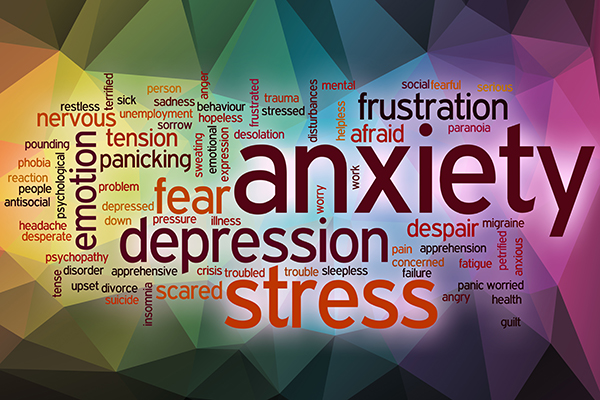 Parler
Parler Gab
Gab
Post-pandemic mental challenges linger
The Wuhan coronavirus (COVID-19) pandemic has come with long-term, sustained stress and trauma for millions of people around the world, and frequently put financial and emotional strain on families. In the first year of the COVID-19 pandemic, the global prevalence of anxiety and depression increased by a massive 25 percent, according to a scientific brief released by the WHO. "The information we have now about the impact of COVID-19 on the world's mental health is just the tip of the iceberg," said WHO Director-General Tedros Adhanom Ghebreyesus. Lockdowns and business shutdowns resulting from the pandemic were identified as major factors for the increase in stress and anxiety around the world. These measures constrained people's ability to work, seek solace and support from loved ones and engage in their communities. Loneliness, stress and anxiety from fear of infection, suffering and death for oneself and for loved ones, inconsolable grief from the loss of family and friends and financial worries from the loss of major sources of income have all been cited as multiple stressors leading to a major depression. Among health workers and front liners, exhaustion, stress in the workplace, fear of infection, exposure to quarantine and death have been major triggers for suicidal thinking. A survey conducted last year by the Associated Press-NORC Center for Public Affairs Research found that Gen Z and millennials have been the most stressed – citing the effects the pandemic has had on their education, careers and social relationships. (Related: Social anxiety in teens and young adults worsen during the pandemic.) Watch this video and learn how to handle anxiety/depression naturally. This video is from the DrSergeTheNutritionistScientist channel on Brighteon.com.More related stories:
Dr. Fab Manzini: Embracing CHANGE key to dealing with post-pandemic depression. Scientists explain how CBD helps address "isolation-induced aggression." High doses of B-vitamins have a profound effect on mental health.Sources:
WHO.int 1 SAMHSA.gov USNews.com WHO.int 2 Brighteon.comFrench study looks at potential for fully covid jabbed to “shed” byproducts onto others
By Ethan Huff // Share
JetBlue hires violent felon to fly planes while discriminating against unvaccinated pilots
By Ethan Huff // Share
Governments continue to obscure COVID-19 vaccine data amid rising concerns over excess deaths
By patricklewis // Share
Tech giant Microsoft backs EXTINCTION with its support of carbon capture programs
By ramontomeydw // Share
Germany to resume arms exports to Israel despite repeated ceasefire violations
By isabelle // Share










